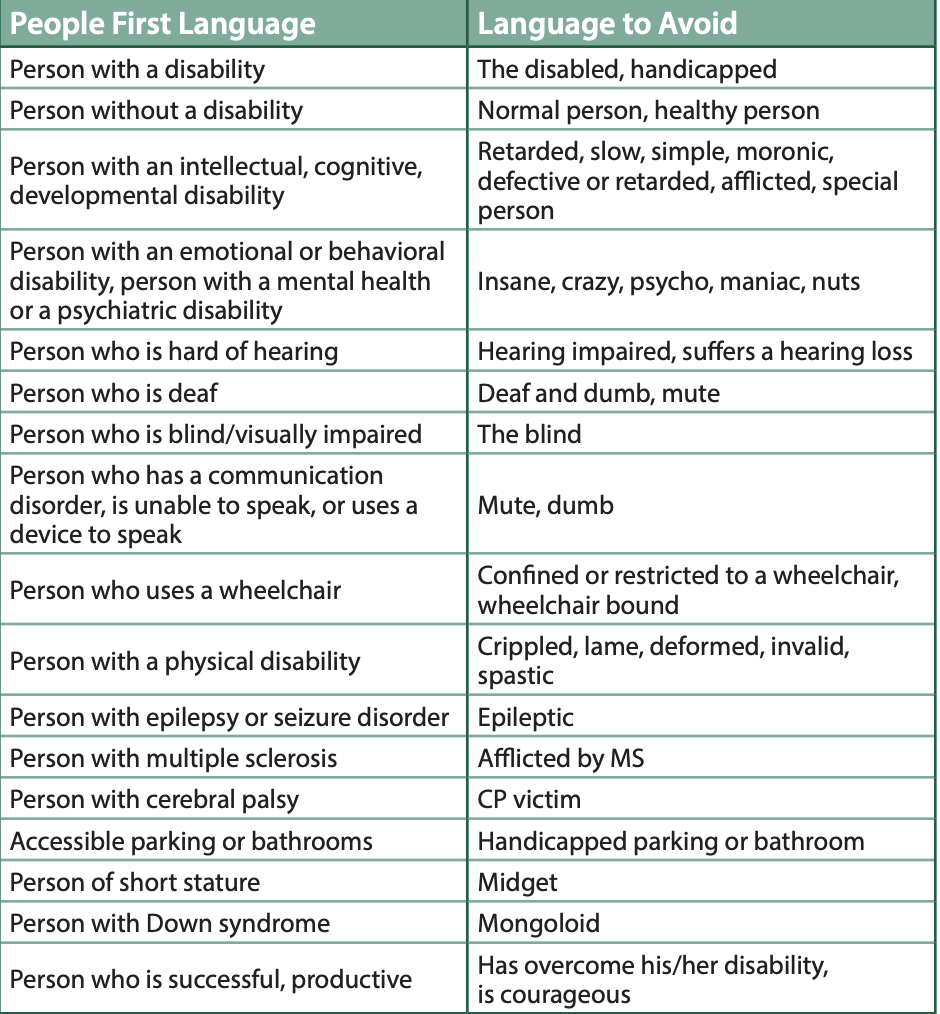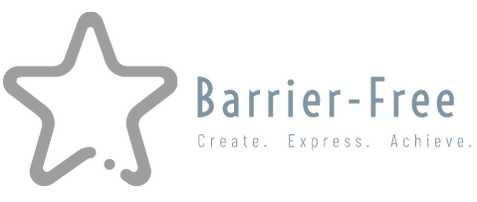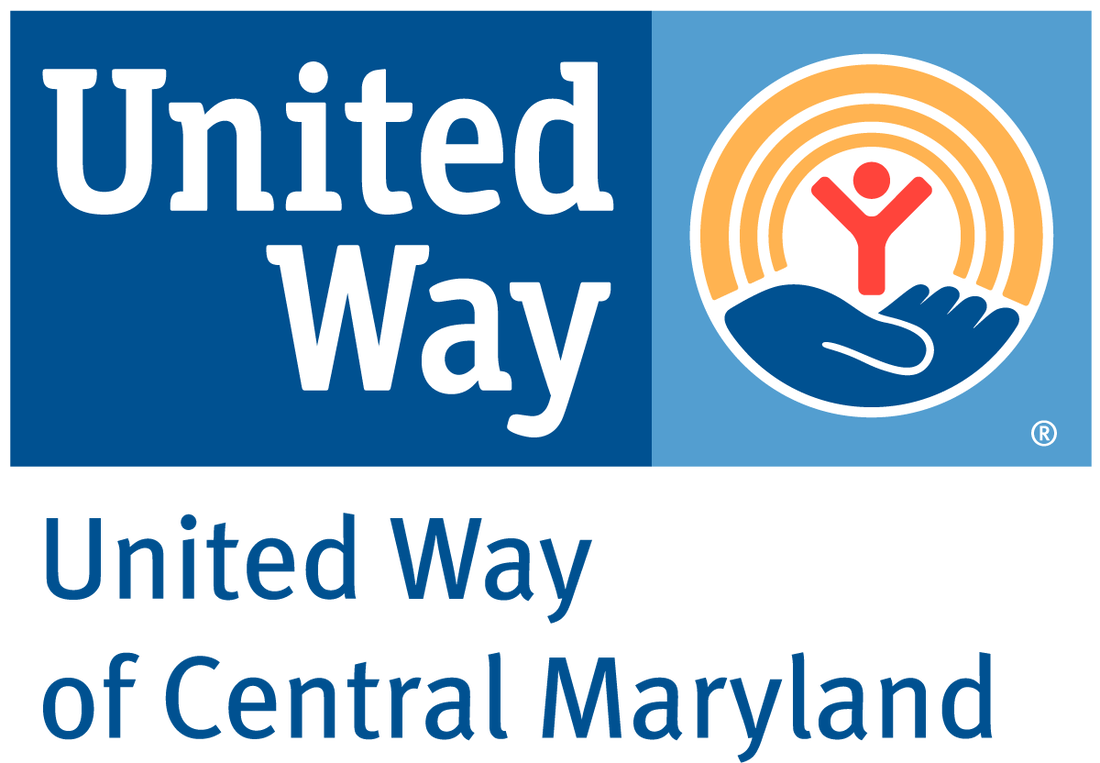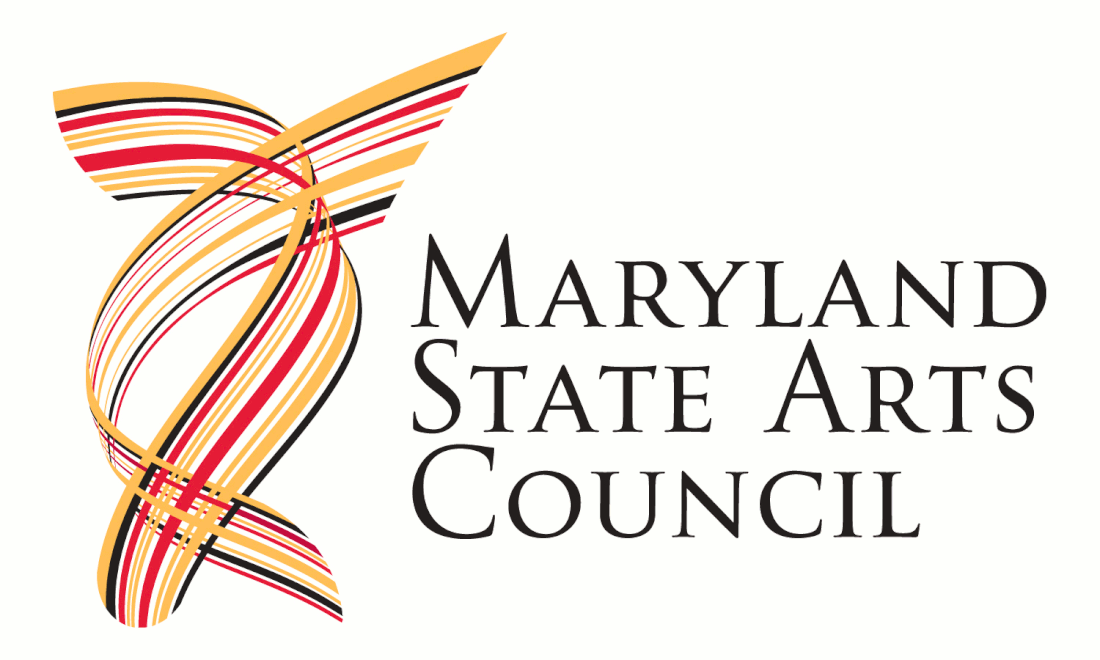|
It might seem relatively easy to think about how to treat people with disabilities with respect. But sometimes, we do things that we don't necessarily realize aren't proper etiquette. So what is the proper etiquette when engaging with the disability community? Read on! First of all...people with disabilities are just that: people. The Golden Rule of "Treat Others the way you'd like to be treated" applies everywhere. There's no *special* way to talk to them. Just talk to them. But, there are some small intricacies to be aware of. Person-First Language: The person comes before the descriptor. Therefore, you wouldn't say "a disabled actor." We say "actors with disabilities." This type of language emphasizes the person first, not their disability. Disabilities can be seen as part of someone's identity, but it's not their entire identity. Sometimes, it's important to think about whether a disability really needs to be addressed at all. A second reason why this is important is to avoid generalizations. One may not mean anything if they were to say something like "The disabled" or "The autistics," but that erases the identities of the people whom they are actually talking about. "People with Disabilities," and "People with Autism." Wheelchair Bound vs. Person Who Uses a Wheelchair: People are not bound to their wheelchairs. They are not restricted to wheelchairs. Wheelchairs are often actually quite liberating to people with physical disabilities, because it provides them mobility. Wheelchair Etiquette: A wheelchair serves as a person's legs. Unless you have explicit instruction from the user or their companion (if the user is nonverbal), you should not attempt touch or attempt to move the wheelchair. If you want to offer help, offer it only if you can see that the user is struggling to do something. But remember that touching other people's bodies unsolicited is always inappropriate, and since the wheelchair often serves as legs, it's inappropriate as well. Conversations: You can have conversation with someone who uses a wheelchair the same way you do with anyone else; just look at them and talk. Try not to bend over or kneel down just to talk to them--this can be patronizing--and if you can, sit to be at eye level. But don't take any extra steps that you don't need to; it's just a regular conversation! And avoid asking about the wheelchair--unsolicited questions like "So how do you do xyz?" are inappropriate. Companions or Counselors Some people with disabilities are frequently accompanied by counselors or companions. If you have a question for the person with the disability, just ask them. I personally have worked with children with disabilities, who were perfectly capable of verbalization, and had other people ask me a question about the child. If the intended target of the question can't answer for themselves, their counselor will step in. But don't immediately assume that a person with a disability can't answer for themselves! Even if they are nonverbal, talk to them, because they will very likely pick up that you are treating them like children, by talking about them to someone else instead of right to them. Address everyone! Some Final Quick Tips... Don't ask someone what their disability is. Don't stereotype disabilities! While some people with disabilities will have shared qualities or behaviors, don't assume everyone with that disability will, Don't assume every person with a disability needs the same type of accommodation. If you have questions, the CDC offers this table of the "do's" and "don'ts" of language used for and with people with disabilities. We at Barrier-Free work tirelessly to ensure we have an open, accommodating space full of respect for others. It's important to educate others, and correct them when needed. . We can work together to make a friendly world! Published by Laura StallCopyright © 2019 Barrier-Free, All rights reserved.
5 Comments
Have you heard any of these terms before? Have you read them in a script?There are so many theater terms used in the process of staging a production. Some are fairly straightforward: we know what a director is, what an actor is, and what a script is. But what about cheating out? What does it mean to spike? Well, let's explore! Let's start On Stage!Stage Left: When an actor stands on stage, facing the audience, his or her left is referred to as stage left. All terms are relative to the actor. Stage Right: When an actor stands on stage facing the audience, his or her right is stage right. Upstage: When an actor moves away from the audience towards the back of the stage, they are moving upstage. Downstage: When an actor moves to the front of the stage, towards the audience, they are moving downstage. Centerstage: The center of the stage, from the actor or audience perspective! Backstage: The area behind the curtain that can't be seen by the audience is backstage. This is where actors grab props, change costumes, or simply wait for their next cue. Now on to Staging!Blocking: Shortly after handing out the script, the director will start blocking. This is when the director, assistant directors, and stage manager will work out which actor stands where and when. This is no small task! The director has to make sure everyone on stage can be seen when they are on stage, whether they're delivering lines or simply providing reactions! Cheat: To cheat is to make an action onstage look real, despite the fact that the actor isn't really doing said action. Most often, the term used is cheating out. Have you ever watched a production and noticed the actors are facing more towards the audience than each other? They're cheating out, because it's the best way to show the audience their expressions, and makes it much easier for the audience to hear! Spiking: When the stage manager and stagehands work out where the set pieces will go during the show, it's called spiking. Usually the spots are marked with tape--a bright color so stagehands can see it in the dark between scenes! Striking: Removing things from the stage is called striking. Usually, this refers to the end of every show weekend, when crew--and sometimes cast!--take all set pieces, props, and extras off of the stage and move it to either storage or, if the props are personal belongings, their houses! However, sometimes, if a scene calls for an empty stage, the director will call for the crew to "strike the set," meaning they'll just take everything backstage. It's Showtime!Tech Week: Tech Week refers to the final week before the shows. Rehearsals usually happen more often, and can last longer, depending on what the director wants. The reason it's called Tech Week is because the show is run through completely using all sound, light, and visual tech that the stage manager and director planned to use. Tech week is good for last minute changes, too! You never know how something translates to the stage, so it's important to be flexible! Call Time: A call time is the time the director has the actors show up at the performance space. Generally, call times can seem way earlier than the actual performance, but it's because actors need to get ready! They need to get into costume, make sure their props are in place, and ensure they're all ready to perform! Time Calls: Time Calls, not to be confused with the term above, are given by the crew, and tell the cast how long they have before the show starts. On in five! Curtain Call: Take a bow! At the conclusion of a show, when everything is resolved, the curtain will close. When it opens, the entire cast comes out to bow. This is called a curtain call. During the curtain call, the cast will acknowledge the staff who help in tech, the music, and the backstage hands. It's very important that everyone is celebrated! There is clearly a lot going on in the show process. We only touched on a short list of terms! We try to include everyone in the process, so it's important to share our knowledge so we can all grow together! Perhaps we'll do another list down the line, but for now, enjoy this quick post! More will come as the season begins! Copyright © 2019 Barrier-Free, All rights reserved.
*|MC_PREVIEW_TEXT|*
|
About our BlogThe Barrier-Free blog exists as a space to share Barrier-Free news, helpful information, and a creative sharing space. Archives
March 2024
Categories
All
|
|
Copyright © Barrier-Free 501(c)(3) All rights reserved.
|
|




















